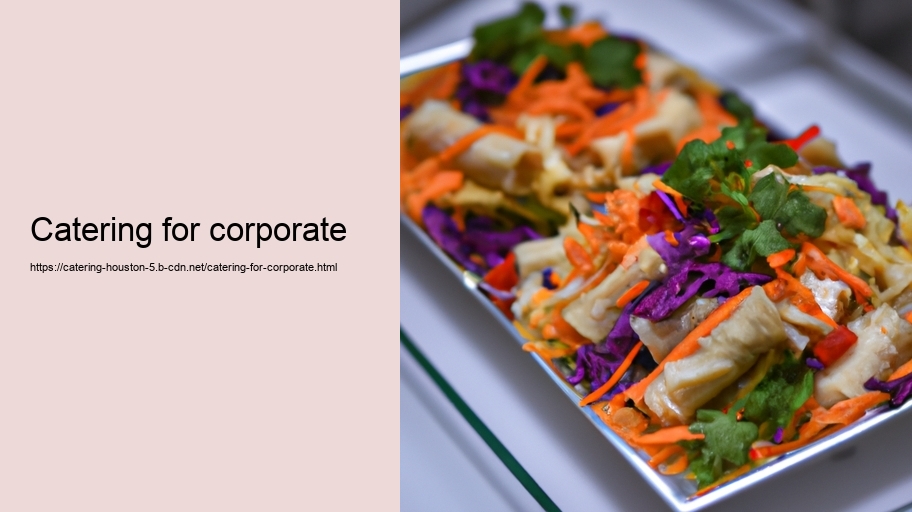Title: The Art of Catering for Corporate Events
In the bustling world of business, corporate events stand as pillars that uphold the essence of a company's culture, celebrate milestones, and foster relationships among employees, clients, and stakeholders. At the heart of these gatherings lies a vital component that can make or break the experience: catering. This essay explores the intricacies of catering for corporate events and why it plays such a crucial role in the success of professional gatherings.
Firstly, let us consider what sets corporate catering apart from other types. Unlike casual social events where culinary expectations might be more relaxed, corporate functions demand precision, sophistication, and an understanding of diverse palates. The menu must not only be delicious but also align with the event's purpose—be it an informal team-building luncheon or a formal gala dinner celebrating a company anniversary.
The cornerstone of excellent corporate catering is versatility. A caterer must navigate dietary restrictions (such as vegetarianism, veganism, gluten-free diets) with ease while still offering a spread that appeals to all attendees. This challenge requires creativity in menu planning and an ability to deliver innovative dishes that satisfy both health-conscious guests and those seeking indulgence.
Furthermore, presentation is paramount in corporate settings. Food is not merely sustenance; it is part art form—a visual feast before being consumed. Professional caterers understand this aesthetic aspect and go to great lengths to arrange their creations on platters and buffets in ways that complement the event’s theme and ambiance. From elegant hors d'oeuvres to sumptuously plated desserts, each item should contribute to an atmosphere of refinement.
Timing too plays a fundamental role in corporate catering. Culinary teams must work like clockwork to ensure meals are served at precisely the right moment during an agenda-packed event without interrupting speakers or presentations. This logistical prowess demonstrates respect for both guests' time and the overarching schedule—the hallmark of well-executed service.
Let us also delve into customization—an attribute highly prized in corporate circles. Companies often desire menus that reflect their brand identity or celebrate regional flavors where the corporation has roots or branches. A caterer adept at personalizing experiences elevates their service from mere provision to storytelling through cuisine.
However intricate these demands may seem, they underscore how essential food is as a unifying force at any gathering but particularly so within professional contexts where impressions matter greatly—and often last long after dessert plates have been cleared away.
In conclusion, catering for corporate events transcends simple meal preparation; it demands finesse across multiple dimensions—taste, aesthetics, timing, diversity—and carries weighty implications for how participants perceive both an individual event and by extension the hosting entity itself. Masterful caterers possess not just culinary skills but also diplomatic tact akin to choreographers guiding guests through gastronomic performances that resonate beyond palates into realms where business meets pleasure seamlessly interwoven through every bite taken under chandeliers or amidst conference room chatter alike—true artisans feeding not just bodies but businesses too.
